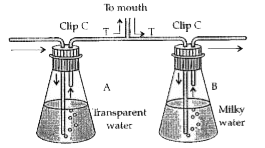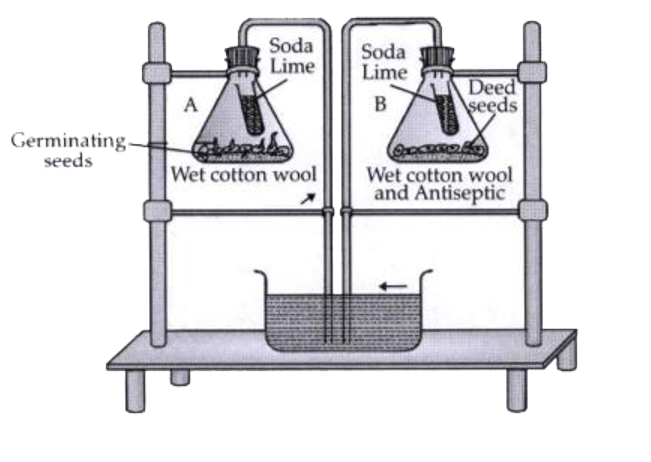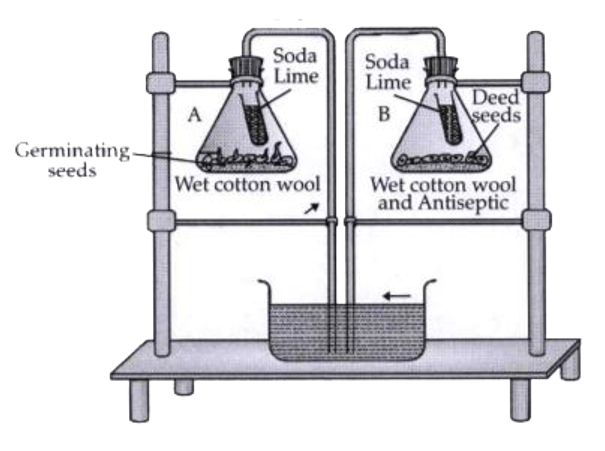Answer the following questions :
What is fermentation ?
Step-by-Step Solution
1. Definition of Fermentation:
- Fermentation is a biological process in which microorganisms, such as bacteria and yeast, convert complex organic substances into simpler substances.
2. Role of Microorganisms:
- Various microorganisms are responsible for the fermentation process. They break down complex substances, which can include sugars and starches, into simpler products like acids, gases, or alcohol.
3. Examples of Fermentation:
- One common example of fermentation is the production of curd from milk. When a small amount of curd inoculant (which contains specific bacteria) is added to milk, the bacteria, particularly *Lactobacillus*, ferment the lactose in the milk to produce lactic acid, resulting in curd formation.
- Other products of fermentation include cheese, which is also made from milk through bacterial fermentation, and alcoholic beverages like wine and beer, which are produced through the fermentation of sugars by yeast.
- Additionally, yeast fermentation is crucial in baking bread, where yeast ferments the sugars in the dough, producing carbon dioxide that makes the bread rise.
4. Summary:
- In summary, fermentation is a process facilitated by microorganisms that convert complex organic materials into simpler substances, resulting in various food products and beverages.
- Fermentation is a biological process in which microorganisms, such as bacteria and yeast, convert complex organic substances into simpler substances.
- Various microorganisms are responsible for the fermentation process. They break down complex substances, which can include sugars and starches, into simpler products like acids, gases, or alcohol.
- One common example of fermentation is the production of curd from milk. When a small amount of curd inoculant (which contains specific bacteria) is added to milk, the bacteria, particularly *Lactobacillus*, ferment the lactose in the milk to produce lactic acid, resulting in curd formation.
- Other products of fermentation include cheese, which is also made from milk through bacterial fermentation, and alcoholic beverages like wine and beer, which are produced through the fermentation of sugars by yeast.
- Additionally, yeast fermentation is crucial in baking bread, where yeast ferments the sugars in the dough, producing carbon dioxide that makes the bread rise.
- In summary, fermentation is a process facilitated by microorganisms that convert complex organic materials into simpler substances, resulting in various food products and beverages.
Similar Questions
With respect to the titration of acid and base. Answer the following questions :
What is the reaction between acid and base called ?
View SolutionAnswer the following questions :
What is the difference between aqueous and alcoholic KOH ?
View SolutionStudy the experimental set-up given below and answer the following questions:

What is your observation for flasks .A. and .B.?
View SolutionStudy the experimental set given below and answer the following questions :

What is your observation after a few days for flasks .A. and .B.?
View SolutionAnswer the following questions :
What is spurious alcohol ?
View SolutionStudy the experimental set given below and answer the following questions :

What is the aim of the experiment shown above?
View SolutionLook at the given figure and answer the following questions:

What is the quantity of heat absorbed by the ice to change its state?
View SolutionWith reference to the Union Parliament, answer the following questions:
What is meant by the term 'Session'? Name the three Sessions of the Union Parliament.
View SolutionAnswer the following questions ,
What are the main functions of a leaf?
View SolutionStudy the diagram given below and answer the following questions:

What is the collective term used for B + C?
View Solution
